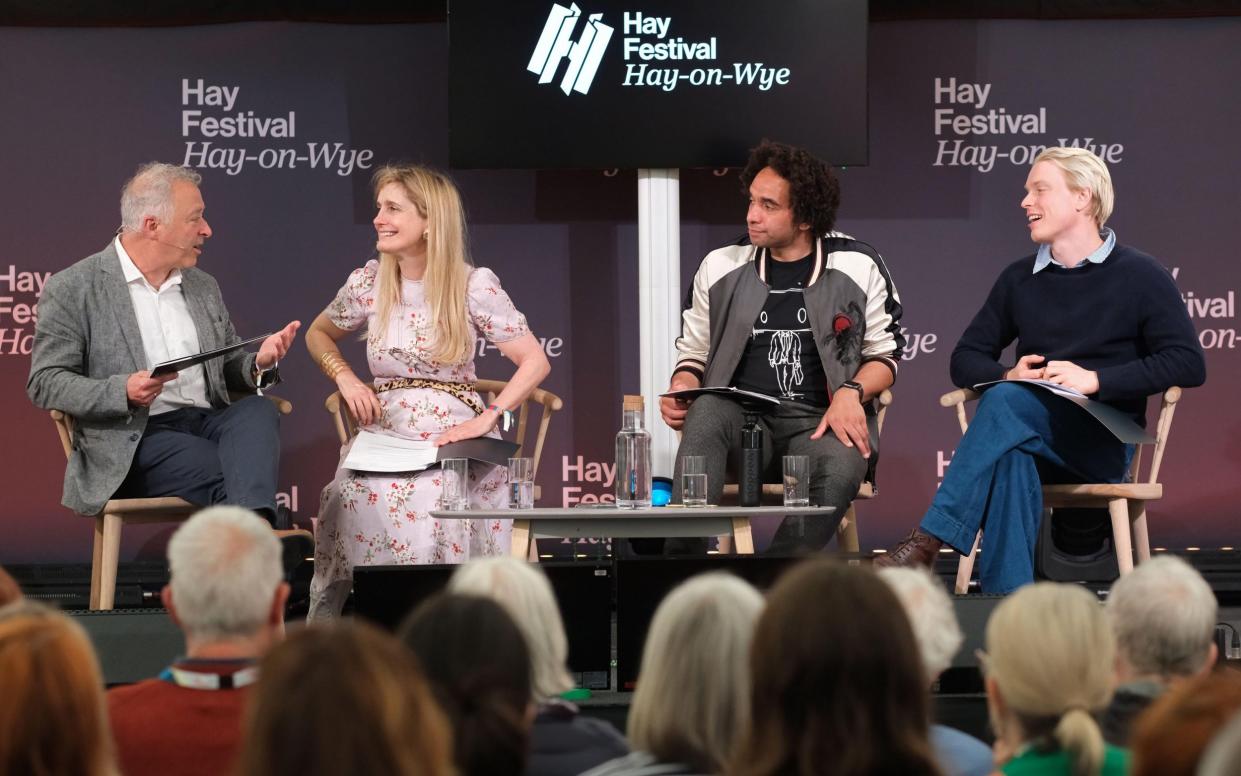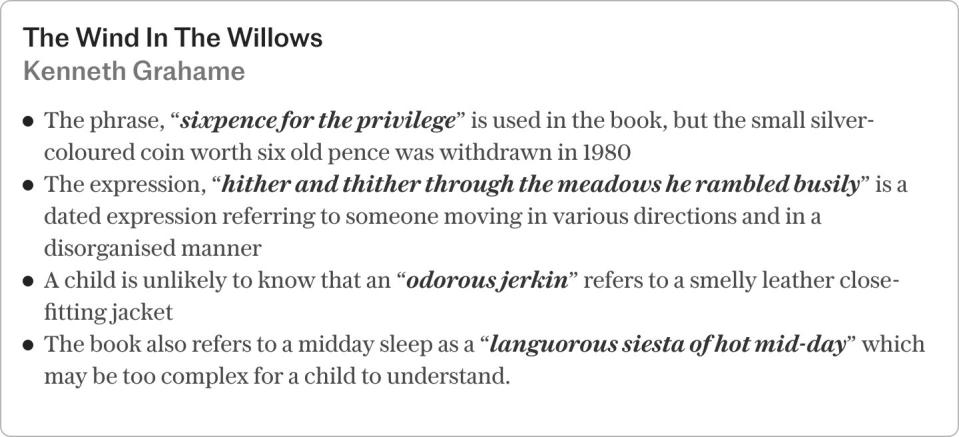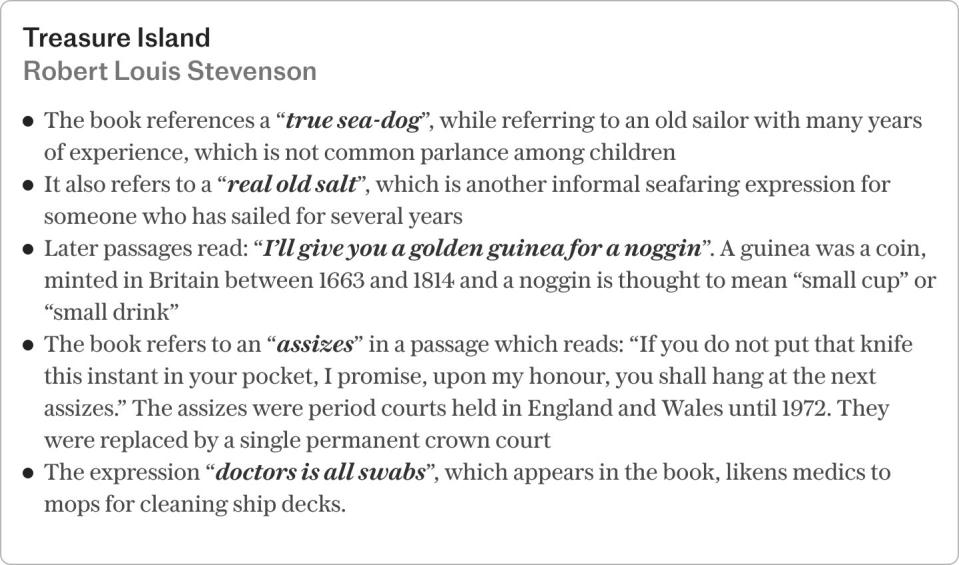Young people need dictionaries to read classics, say children’s authors

Children should be given dictionaries to help them read the classics, the children’s laureate has said, amid concerns that young people now find them too challenging.
During an appearance at the Hay Festival, a panel of leading children’s authors – Cressida Cowell, Frank Cottrell-Boyce and Joseph Coelho – discussed their love of Treasure Island and The Wind In The Willows.
However, they acknowledged that today’s children can feel daunted by the vocabulary in those books.
At the Hay Festival, a teacher in the audience said she was conscious when reading with children that “there are words you would expect them to understand, that they don’t”.
She said: “If you look at the Sixties books that I grew up with, the language in them is so much more advanced than the equivalent now. I think there’s a danger that we’ve dumbed down early literature for children so that they don’t have the vocabulary to transition from that to Treasure Island.”
Coelho, the children’s laureate, replied: “I get surprised that kids are often not familiar with dictionaries and a thesaurus. Because if they are empowered to look up an unknown word, that can be a massive thing.
“I loved dictionaries when I was a kid. I loved looking up words and discovering them for myself, and that really helped with my reading.

“We can empower kids in that way – give them dictionaries, and tell them it’s OK to not know.”
Cowell, author of the best-selling series How To Train Your Dragon, said: “I wouldn’t parachute a kid in now with Treasure Island. I think you really have to lead kids up to it … whereas we just went to them.”
Cottrell-Boyce, whose books Millions and Cosmic are taught in schools, said it was important to reassure children that they do not have to understand every line in a book to enjoy it.
“When we do Shakespeare in schools, the idea that you’ve got to decode every word – that’s just not true. It’s not true of pop songs.
“Nobody sits there saying, now before you listen to this song, you have to understand what this lyric actually means. You’re just carried away in a song. Maybe you don’t have to understand every word.”
Cottrell-Boyce stressed the importance of reading aloud, but added: “Reading The Wind in the Willows out loud is a task.”
Cowell said that parents should not worry if their children show no interest in reading the classics. “My second one didn’t really love reading until she was 13 and I gave her Angus, Thongs and Perfect Snogging [by Louise Rennison].

“I read to them endlessly, I did all the right things, but it wasn’t until then. And then she went on to read English Literature.”
She added: “Films and telly are wonderful. It’s all stories. But kids have got to be reading as well because things on a film and screen happen out there. In a book, it’s happening inside your head. You are that person.”
The trio were appearing at Hay in support of the Queen’s Reading Room, the literary charity launched last year to help people connect with books they will love.
The charity has commissioned neuroscientific research that found that just five minutes of reading fiction can reduce stress by nearly 20 per cent, and improve concentration and focus by as much as 11 per cent.
People who frequently read fiction are significantly less likely than non-readers to report feelings of loneliness and more likely to report feeling connected with others, the study found.
The Queen’s Reading Room Festival will take place at Hampton Court Palace on June 8, featuring appearances by Helena Bonham-Carter, Dame Harriet Walter, Sir Ian Rankin and Lee Child, among others.

 Yahoo News
Yahoo News 
